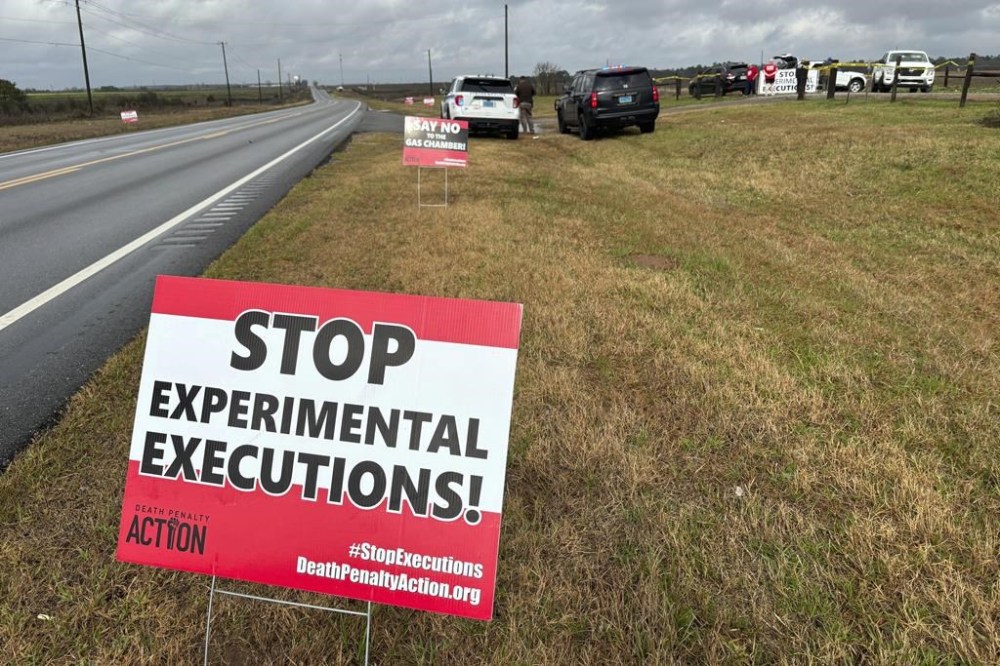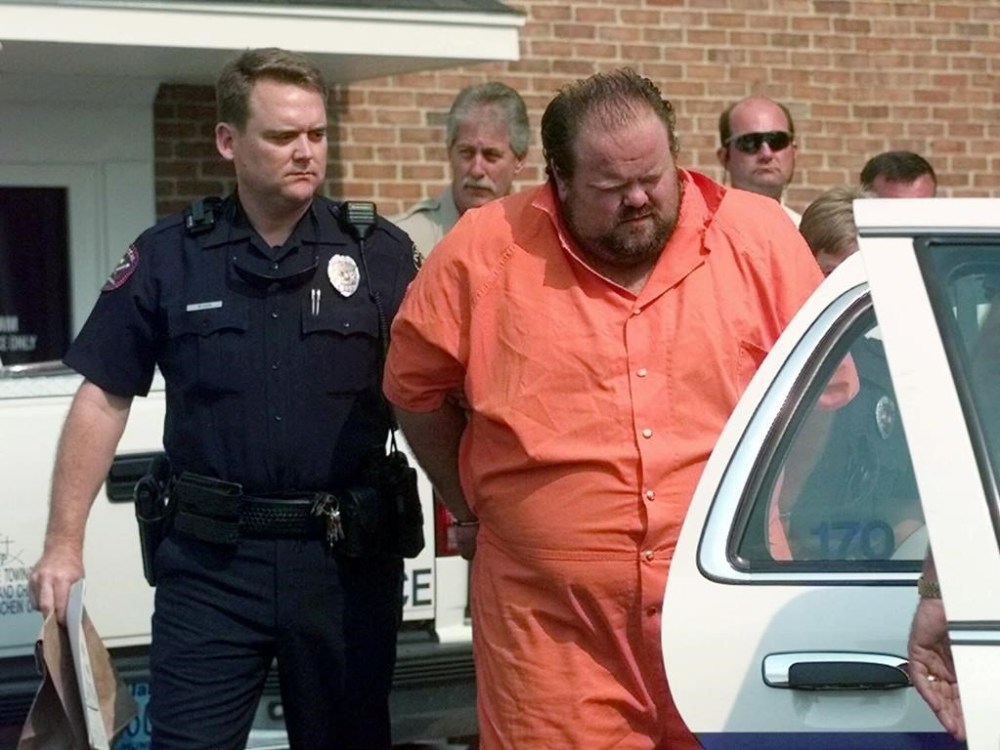Alabama seeks to carry out second execution using controversial nitrogen gas method
Advertisement
Read this article for free:
or
Already have an account? Log in here »
To continue reading, please subscribe:
Monthly Digital Subscription
$0 for the first 4 weeks*
- Enjoy unlimited reading on winnipegfreepress.com
- Read the E-Edition, our digital replica newspaper
- Access News Break, our award-winning app
- Play interactive puzzles
*No charge for 4 weeks then price increases to the regular rate of $19.95 plus GST every four weeks. Offer available to new and qualified returning subscribers only. Cancel any time.
Monthly Digital Subscription
$4.99/week*
- Enjoy unlimited reading on winnipegfreepress.com
- Read the E-Edition, our digital replica newspaper
- Access News Break, our award-winning app
- Play interactive puzzles
*Billed as $19.95 plus GST every four weeks. Cancel any time.
To continue reading, please subscribe:
Add Free Press access to your Brandon Sun subscription for only an additional
$1 for the first 4 weeks*
*Your next subscription payment will increase by $1.00 and you will be charged $16.99 plus GST for four weeks. After four weeks, your payment will increase to $23.99 plus GST every four weeks.
Read unlimited articles for free today:
or
Already have an account? Log in here »
Hey there, time traveller!
This article was published 21/02/2024 (687 days ago), so information in it may no longer be current.
MONTGOMERY, Ala. (AP) — Alabama is seeking to put a second inmate to death using nitrogen gas, a move that comes a month after the state carried out the first execution using the controversial new method.
Alabama Attorney General Steve Marshall’s office asked the state Supreme Court on Wednesday to set an execution date for Alan Eugene Miller. The state said Miller’s execution would be carried out using nitrogen. Miller, now 59, was convicted of killing three people during a pair of 1999 workplace shootings in suburban Birmingham.
“The State of Alabama is prepared to carry out the execution of Miller’s sentence by means of nitrogen hypoxia,” the attorney general’s office wrote, adding that Miller has been on death row since 2000 and that it is time to carry out his sentence.

An attorney listed for Miller did not immediately respond to an email seeking comment.
The execution date request comes as the state and advocates continue to present opposing views of what happened during the state’s first execution using nitrogen. Kenneth Smith shook and convulsed in seizure-like movements for several minutes on the death chamber gurney as he was put to death Jan. 25.
Marshall maintained that the execution was “textbook” and said the state will seek to carry out more death sentences using nitrogen gas.
“As of last night, nitrogen hypoxia as a means of execution is no longer an untested method. It is a proven one,” Marshall said the morning after Smith’s execution, extending an offer of help to other states considering the method.
But a lawsuit filed by another death row inmate seeking to block the use of nitrogen said witness accounts show that Smith’s execution was a botched “human experiment.”
“The results of the first human experiment are now in and they demonstrate that nitrogen gas asphyxiation is neither quick nor painless, but agonizing and painful,” according to the lawsuit.
Like Smith, Miller survived a previous lethal injection attempt. The state attempted to execute Miller by lethal injection in September 2022. The execution was called off after officials were unable to get an intravenous line connected to the 351-pound (159-kilogram) prisoner’s veins. After that attempt, the state struck an agreement with Miller’s lawyers that it would never again seek to execute Miller by lethal injection and that any attempt to execute him in the future would be done with nitrogen gas.

Miller said that during the aborted 2022 lethal injection attempt, prison staff poked him with needles for over an hour as they tried to find a vein and at one point left him hanging vertically as he lay strapped to a gurney.
Miller, a delivery truck driver, was convicted in the fatal workplace shootings of Lee Holdbrooks, Scott Yancy and Terry Jarvis. Prosecutors said Miller killed Holdbrooks and Yancy at one business and then drove to another location to shoot Jarvis. Each man was shot multiple times.
Testimony indicated Miller was delusional and believed the men were spreading rumors about him. Jurors convicted Miller after 20 minutes of deliberation and then recommended a death sentence, which a judge imposed.
.

